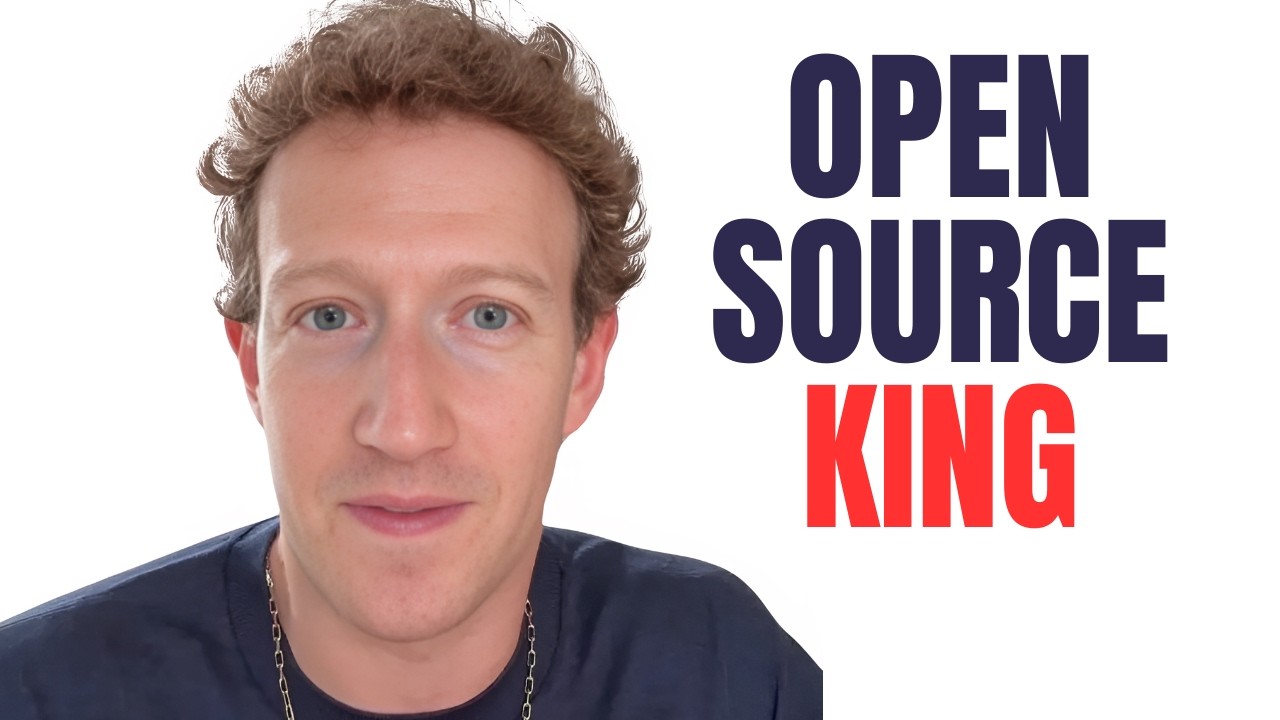The video discusses Mark Zuckerberg’s vision for open-source AI with the release of LLaMA 3.1, highlighting its potential to democratize access to AI technology and compete with closed-source models from major companies. Zuckerberg emphasizes the advantages of open-source AI, including customization, data control, and enhanced security, while advocating for collaboration and innovation to create a safer and more beneficial technological future for society.
The video discusses Mark Zuckerberg’s recent letter on the release of LLaMA 3.1, an open-source AI model that aims to compete with leading closed-source models from companies like OpenAI and Google. Zuckerberg draws parallels between the current AI landscape and the early days of computing when closed-source Unix models dominated. He argues that just as open-source Linux eventually outperformed closed-source systems, open-source AI has the potential to be more advanced, secure, and cost-effective as more developers contribute to and modify it.
Zuckerberg highlights the advantages of open-source AI, such as the ability for developers to fine-tune and customize models based on their specific needs. He emphasizes that LLaMA 3.1 is designed for flexibility, allowing users to generate synthetic data for training other models. The permissive licensing encourages innovation and collaboration, as companies like Amazon and NVIDIA are already working to create ecosystems that support the adoption of LLaMA. Zuckerberg envisions a future where LLaMA becomes the industry standard, thereby democratizing access to AI technology and preventing reliance on closed models from a few dominant companies.
The video also touches on the broader implications of open-source AI for businesses. Many organizations are hesitant to use closed models due to concerns about data privacy, vendor lock-in, and the inability to control their models. Open-source AI offers a solution to these issues, allowing businesses to run models on their own infrastructure, maintain control over their data, and avoid the high costs associated with proprietary models. This approach aligns with the growing trend of decentralization in technology, where companies seek to avoid dependence on a single provider.
Zuckerberg argues that open-source AI not only benefits Meta but also serves the larger goal of ensuring technology is accessible and beneficial to society as a whole. By fostering an open ecosystem, Meta aims to sidestep the constraints imposed by competitors and leverage its resources to develop cutting-edge AI tools. The letter emphasizes the importance of collaboration and innovation in creating a robust AI future, where the advantages of technology are distributed more evenly across different sectors and communities.
Finally, Zuckerberg addresses concerns about AI safety, asserting that open-source models can be more secure due to their transparency and the ability for a wider community to scrutinize them. He suggests that a decentralized approach to AI can mitigate risks associated with both unintentional and intentional harm. By promoting open-source development, Zuckerberg believes that the collective effort of the global community can lead to safer AI systems that can adapt and respond to challenges more effectively, ultimately driving economic growth and enhancing quality of life.
